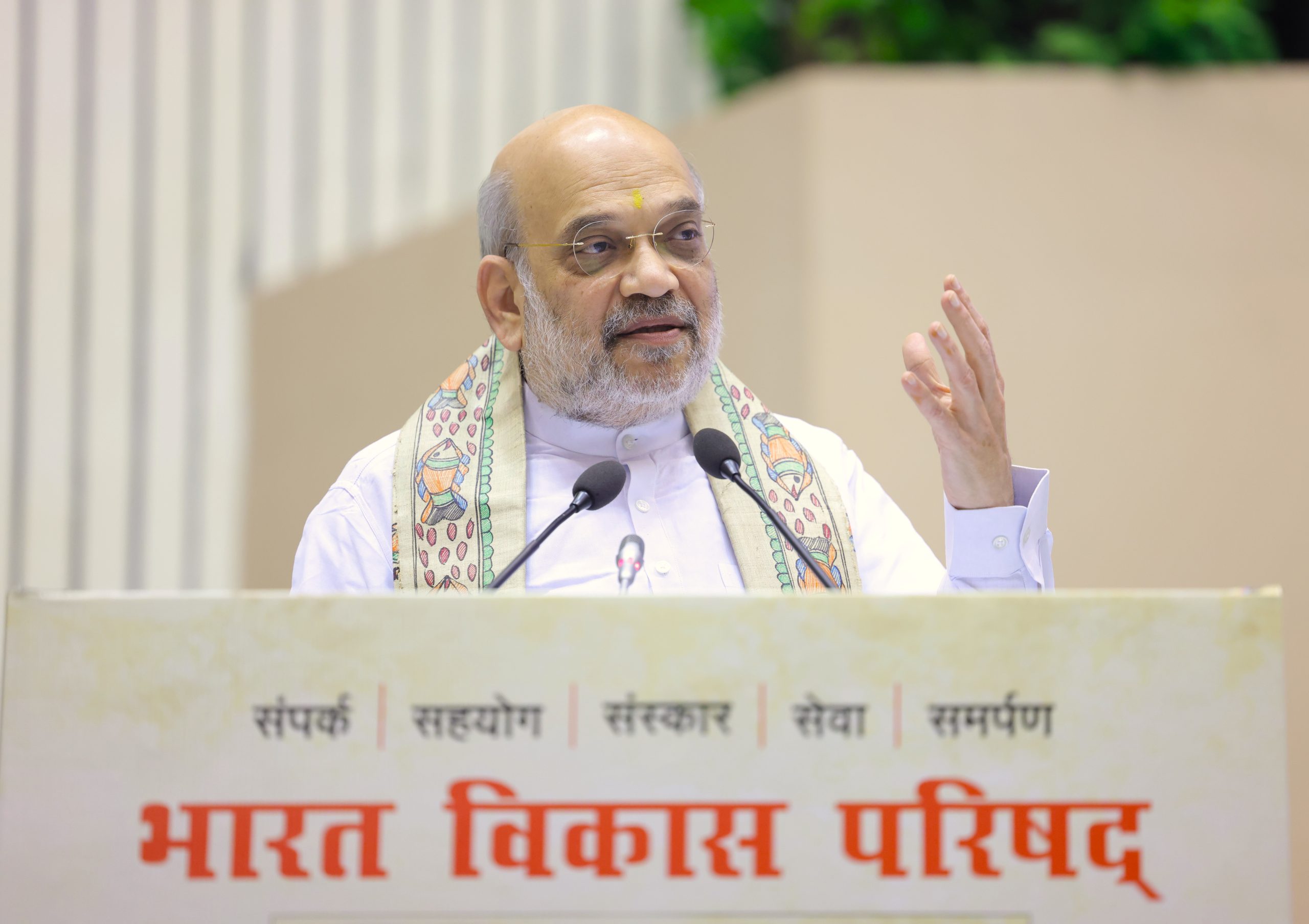Union Home Minister and Minister of Cooperation, Amit Shah, on Monday addressed the 63rd Foundation Day celebration of the Bharat Vikas Parishad (BVP) in New Delhi, praising the organisation for its six-decade-long contribution to national development and social service. The event was attended by several dignitaries, including retired Supreme Court Judge and National President of the Parishad, Justice Adarsh Kumar Goel.
Describing BVP as a living embodiment of India’s civilisational ethos, Shah said the organisation has effectively connected “service with organisation, organisation with values, and values with nation-building.” Inspired by the ideals of Swami Vivekananda, BVP has, according to Shah, helped mobilise society’s creative energy through its core principles of dedication (Samarpan), organisation (Sangathan), and values (Sanskar).
“An institution that works tirelessly for 63 years doesn’t just survive—it thrives on the dedication of countless volunteers. While 63 years may be old in a person’s life, for a service-driven institution like BVP, it marks youthful vibrance,” Shah remarked.
Shah also honoured the legacy of freedom fighter Hemam Nilamani Singh from Manipur, who was posthumously recognised at the event. Singh, inspired by Netaji Subhas Chandra Bose, joined the Indian National Army in 1944 and devoted his life to education, service, and linguistic unity.
Highlighting the reach of BVP, Shah noted that the organisation operates more than 1,600 branches across 412 districts and engages over 84,000 families. BVP has actively contributed to disaster relief, blood donation drives, rural education camps, and moral value-building initiatives in schools across the country.
Turning to national development, Shah said that Prime Minister Narendra Modi has envisioned a Viksit Bharat (Developed India) by 2047 and laid out five foundational goals: economic progress, freedom from mental and cultural slavery, pride in India’s heritage, unity and solidarity, and a sense of civic duty. “The Bharat Vikas Parishad has worked silently but powerfully toward these goals for years,” Shah said.
He highlighted achievements from the last 11 years of Modi’s tenure: the opening of over 55 crore bank accounts, the provision of safe drinking water to 15 crore households, construction of toilets in 12 crore homes, distribution of gas cylinders to 10 crore families, and the building of over 4 crore homes for the poor. He also emphasized the empowerment of women through initiatives like Lakhpati Didi and Mudra Yojana, where two-thirds of the loan beneficiaries are women.
Shah pointed to the government’s efforts to decolonize national symbols and reclaim India’s heritage. From renaming Rajpath to Kartavya Path to replacing colonial insignia in the Indian Navy with Chhatrapati Shivaji Maharaj’s sword, he said these moves inspire national pride. Other symbolic actions include renaming islands in Andaman-Nicobar as Subhash Dweep and Shaheed Dweep, and Race Course Road as Lok Kalyan Marg.
“Prime Minister Modi has shown how heritage and development can progress hand-in-hand,” said Shah. “While he built the Ram Temple, he also rolled out 5G and expanded digital payments to every corner of the country—even to vegetable vendors.”
He also highlighted simultaneous progress in education and technology, citing the New Education Policy’s focus on mother-tongue instruction, and the expansion of premier institutes like IITs, IIMs, and AIIMS. India, he said, is emerging as a leader in AI, cybersecurity, drones, and green hydrogen. He connected this progress with national pride initiatives like the establishment of the Sengol in Parliament and the international promotion of Yoga.














